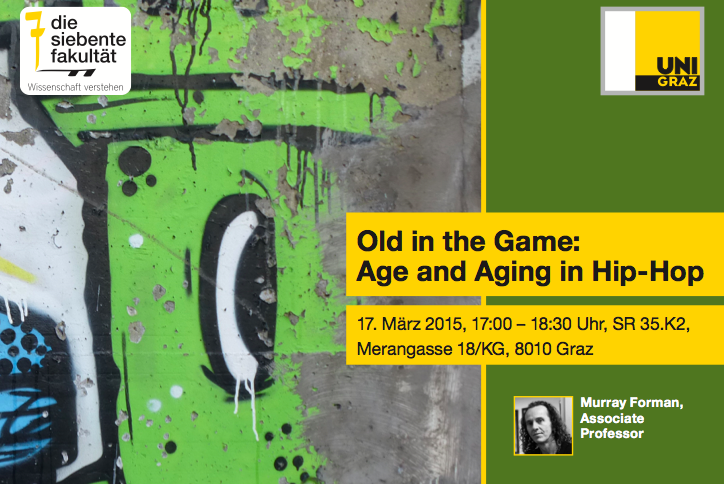CFP: Seniors and Technologies: Issues of inclusion and exclusion
Special Issue of the Canadian Journal of Communication
Guest Editors: Houssein Charmarkeh and Martine Lagacé
http://www.cjc-online.ca/
Information and communication technologies (ICT) are ubiquitous and omnipresent in our society. They shape the way we live, work and interact. However, all members of society do not enjoy equal access to the opportunities offered by this “information society” (Mason and Hacker, 2003). Digital divide exists and stems from different factors such as age, income, level of education, along with cultural, economic and social dimensions. For example, in respect to age, seniors are lagging behind other age groups in terms of ICT access. Yet, beyond access, there is a type of digital divide based on age that has been less studied: the second-level digital divide (Hargittai, 2002; DiMaggio and al. 2004) which relates to disparities between young and old in terms of ICT usage and skills (Michel et al, 2009).
The purpose of this volume is to explore the dynamics between age, aging, and ICT. Over time, as our global population ages, we are becoming more digitally connected underlining the importance of reflecting on and understanding the linkages between these phenomenons.
Authors are invited to submit manuscripts on various topics, including, by way of example only, the following:
-Perceptions of seniors on technologies (from communicational, social and psychological perspectives, etc.);
-Modes of usage (or non usage) and the process of appropriation (or non appropriation) of technologies by seniors;
-Intergenerational dynamics in terms of seniors’ interest and usage of technologies;
-Social Participation of seniors and technologies;
-Health / healthcare, seniors and technologies;
-Older workers and technologies;
-Design of technologies for seniors as well as services provided to seniors;
– Ageism and technologies.
Submissions should contribute to a critical analysis of the dynamics between age/aging and technologies with a focus on issues pertaining to inclusion and exclusion of older adults in a digitalized society. Manuscripts can rely on either theoretical or empirical approaches as well as different fields of study.
Extended abstracts (600 words) will be accepted until December 1, 2014. Please include a prospective title, 5-7 keywords and a short bio-note about yourself. We welcome abstracts and full-length papers in either English or French.
The editors will review the abstracts and invite submission of full-length papers (7,000 – 9,000 words) for blind peer-review. An invitation to submit a full-length paper is not a guarantee that the paper will be accepted, and all articles will undergo a peer-review process. Deadline for the submission of full-length papers: March 1, 2015.
To submit your abstract, or for any further queries regarding this special issue, please contact the issue editors directly: houssein.charmarkeh@uottawa.ca / martine.lagace@uottawa.ca
////////////////////////
Appel de textes: Les personnes âgées et les technologies : Enjeux d’inclusion et d’exclusion
Volume spécial du Canadian Journal of Communication
Volume coordonné par: Houssein Charmarkeh and Martine Lagacé
Les technologies de l’information et de la communication (TIC) sont omniprésentes et ont réduit sans nul doute l’espace et le temps. Elles façonnent notre façon de vivre, de travailler et d’interagir. Mais tous ne profitent pas de façon égale des multiples potentialités de communication et d’échanges qu’offrent cette « société de l’information » (Mason and Hacker, 2003). Des fractures numériques existent et sont basées sur le revenu, le niveau d’éducation, le capital culturel/social/économique et l’âge. L’écart le plus élevé entre ceux qui ont accès à l’informatique connectée et ceux qui en sont dépourvus reste lié à l’âge : plus on vieillit, moins on a accès à Internet. Cependant, il existe une fracture numérique qui n’est souvent pas prise en compte dans les statistiques nationales : c’est la fracture liée aux inégalités d’usages des technologies numériques, conceptualisée comme la fracture numérique de second degré (Hargittai, 2002 ; DiMaggio and al. 2004). Ce faisant, plus que la question de l’accès et de l’équipement, ce sont les disparités liées à la qualité de l’utilisation et aux perceptions, c’est-à-dire les multiples façons de profiter des potentialités de l’Internet qui accentuent l’écart sur la base de l’âge (Michel et al, 2009).
L’objectif de ce volume est d’explorer les dynamiques entre l’âge, notamment le vieillissement, et les technologies. Dans des sociétés de plus en plus connectées et de plus en plus vieillissantes, il apparaît essentiel de nourrir une réflexion sur ces enjeux sociaux.
Les auteurs sont invités à soumettre des manuscrits portant sur divers thèmes, incluant, à titre d’exemples seulement, les suivants :
-Perceptions des personnes âgées quant aux technologies (perspectives communicationnelle, sociale, psychologique etc.);
-Modes d’usage (ou non usage) et d’appropriation (ou de non appropriation) des technologies par les personnes âgées;
-Dynamiques intergénérationnelles dans l’intérêt et l’usage des technologies par les personnes âgées;
-Participation sociale des personnes âgées et technologies;
-Soins de santé, personnes âgées et technologies;
-Travailleurs âgés et technologies;
-L’offre de produits et services technologiques aux personnes âgées;
– Âgisme et technologies.
Les soumissions devront contribuer à une analyse critique sur les dynamiques vieillissement / technologies mais plus particulièrement quant aux enjeux d’inclusion et d’exclusion des personnes âgées dans les sociétés « connectées ». Les auteurs (de divers horizons disciplinaires) pourront privilégier des approches théoriques comme empiriques.
Les résumés (600 mots) seront acceptés jusqu’au 1er décembre 2014 et devront inclure un titre provisoire, un total de 5 à 7 mots-clés ainsi qu’une brève note biographique des auteurs. Les résumés (comme les manuscrits) pourront être soumis en français ou en anglais.
Chaque résumé fera l’objet d’une révision. Les auteurs sélectionnés seront ensuite invités à soumettre un texte complet (7,000 – 9,000 mots) qui sera également évalué par le biais d’un processus en double aveugle. L’invitation à soumettre un texte complet n’en garantit pas sa publication.
La date limite pour la soumission des textes complets est le 1er mars 2015.
Pour soumettre votre résumé et pour toute question quant à ce numéro spécial, merci de contacter les éditeurs : houssein.charmarkeh@uottawa.ca / martine.lagace@uottawa.ca

